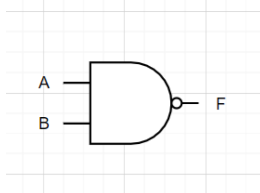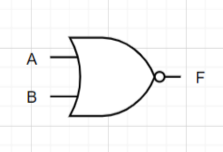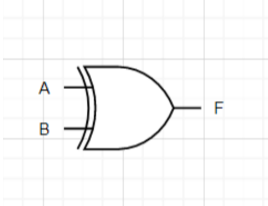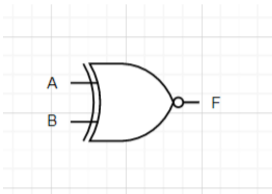Theory
Complex Logic Gates: Theory
Introduction
Complex logic gates are formed by combining basic logic gates like AND, OR, and NOT to create more advanced circuits that perform specific logical functions. These gates simplify digital circuit design and can reduce the number of integrated circuits (ICs) required.
Key Types of Complex Logic Gates
1. NAND Gate
A NAND gate is the combination of an AND gate followed by a NOT gate (inverter). It outputs a logic high (1) unless both inputs are high, making it a universal gate, as any logic gate can be constructed using only NAND gates.
| A | B | NAND |
|---|---|---|
| 0 | 0 | 1 |
| 0 | 1 | 1 |
| 1 | 0 | 1 |
| 1 | 1 | 0 |
2. NOR Gate
A NOR gate is a combination of an OR gate followed by a NOT gate. It outputs a logic high (1) only when both inputs are low. Similar to the NAND gate, NOR can be used to construct any other basic gate.
| A | B | NOR |
|---|---|---|
| 0 | 0 | 1 |
| 0 | 1 | 0 |
| 1 | 0 | 0 |
| 1 | 1 | 0 |
3. XOR Gate
An XOR (exclusive-OR) gate outputs true (1) when exactly one of the inputs is true. It's commonly used in arithmetic circuits and error detection.
| A | B | XOR |
|---|---|---|
| 0 | 0 | 0 |
| 0 | 1 | 1 |
| 1 | 0 | 1 |
| 1 | 1 | 0 |
4. XNOR Gate
The XNOR (exclusive-NOR) gate is the complement of the XOR gate. It outputs true (1) only when the inputs are equal.
| A | B | XNOR |
|---|---|---|
| 0 | 0 | 1 |
| 0 | 1 | 0 |
| 1 | 0 | 0 |
| 1 | 1 | 1 |
Alternative Explanation of Logic Gates
Complex gates NAND and NOR can be used to represent basic logic gates
functions AND, OR and NOT. The representation is shown below :
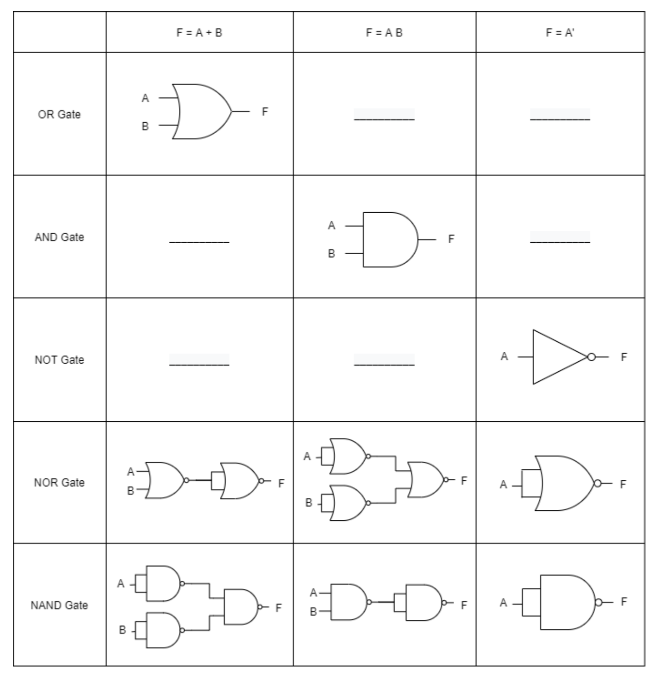
Importance of Complex Logic Gates
Complex gates, such as NAND and NOR, are known as universal gates because they can be used to implement any Boolean function or any other gate (AND, OR, NOT). They are particularly useful in optimizing the design of digital circuits by minimizing the number of components required.
In more advanced circuits, complex gates like XOR and XNOR play critical roles in error detection, data comparison, and arithmetic operations such as addition and subtraction which we will get into on the next module.
Conclusion
Complex logic gates offer an efficient way to design more intricate digital systems by reducing the complexity and number of ICs needed. Their versatility makes them essential building blocks in modern digital electronics.

